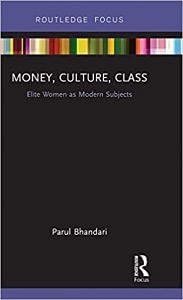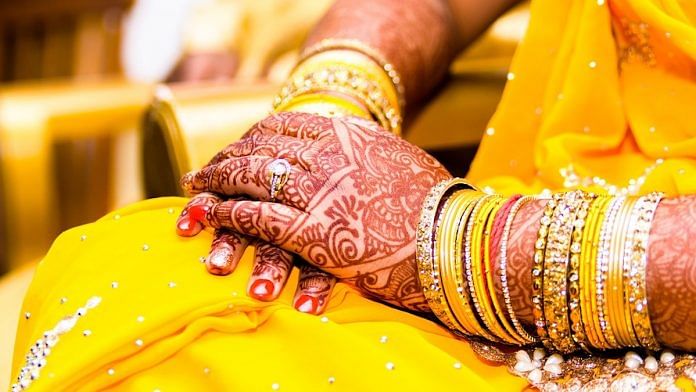When I started my research on elites, a popular response of friends and colleagues was that of astonishment and at times disdain, as to why I care to know about the lives of the rich. […] These reactions made me aware of the general stereotype about rich housewives of the business class, who were seen essentially as perfect emblems of Veblen’s conspicuous consumption, perhaps as morally vacuous and certainly as proudly entitled. It was these reactions that propelled me to unpack the seemingly simplistic, materially dominated elite lifeworld and delve into the meanings of different uses of money, the affections that contextualise these uses, and the ways in which women create elite cultures and gender identities.
I want to clarify here that my intention is not to present these women as victims or salvage their image and popular understanding of being privileged and entitled. […] I focus on the role of money in shaping elite worlds. Whilst popularly the possession of money in itself, albeit in abundance, is seen as self-explanatory to understand the lives of elites, I explain that it is important to trace the different uses of money, for each use renders different meanings in elite lifeworld. […] I am interested in exploring the ways in which it becomes a language of articulation of status, renegotiation of class boundaries, and an assertion of ‘self’ as well as the collective. […] my emphasis is not simply in delineating the presence of money, but unravelling why it is used in the way that it is, and what range of affections does possessing and spending money allude to? In other words, how are pride and entitlement articulated in elite lives? Do the elites also experience vulnerabilities and anxieties? If so, in what form and how do they overcome these? […]
A number of the elite housewives in Delhi are arduous followers of gurus. Whilst most of these women were brought up in Hindu families that worship in temples, many of them chose to pledge their religious and spiritual affiliations to specific gurus, giving a second order of preference, as it were, to temple worship and following rituals to pray to Gods. The ritual expectations around ‘guru worship’ mainly involves following the Guru’s sermons, organising events where his sermons are remembered, and visiting his ashram regularly. […]
I was amazed at these women’s dedication towards sewa and following Gurusaab; not because I saw them as irreligious or devoid of any ritual, spiritual or religious leanings but because, thus far, I had mainly been interacting with them in the context of social gatherings, discussions on marital and familial problems, and shopping. It was indeed an unanticipated foray into their world of spirituality […] Seeing my interest in this topic Sonia invited me to a satsang at her bungalow in South Delhi so I could see for myself the dedication, respect, attachment, and love that the Guru’s followers have for him […] As the satsang began at Sonia’s house, some women got up and began to dance to the hymns, as though in trance. After this, another ‘ritual’ took place, which I did not expect in the least — women took a microphone to narrate their experiences of personal struggles, which they overcame with Gurusaab’s blessings and teachings. […]
Also read: No three-tiered wedding cake, no mangalsutra: Single women a growing tribe in India
As a Hindu myself, I had never really encountered this kind of expression of religiosity or spirituality where a group of people gather and discuss their anxieties and lay bare their vulnerabilities […] To then witness such a ritual, especially amongst the super-rich of Delhi who are known for their privacy and exclusivity, was exciting, perplexing, and revealing. […] To me, this demonstrated a deep sense of trust and bond with each other, a sort of shared class culture or habitus regarding the affections that mark elite lives, for they knew that each elite family sitting in that space had similar struggles and anxieties relating to business, marriage alliances, and desiring for male heirs. In this sense, this religious or spiritual practice reiterated class and therefore exclusionary boundaries for it cultivated a space of expression of similar class position related anxieties and the unsaid rule of keeping it all within themselves, that is, their particular class fraction.
A conspicuous aspect of the cult of the guru, which was evident during the satsang was the global reach and international character of the guru himself. […] A lady follower also claimed that Gurusaab was very fond of wearing designer shoes and clothes, and encouraged his followers to be well-dressed and spend their money ‘well’. […] The guru wished them to live well and aim for a better material life as well. His followers, therefore, are able to occupy both spaces of spirituality and materiality, charity and extravagance, without having to choose between the two; a form of teaching which is certainly conducive and appealing to their elite lifeworlds.
 This excerpt from Money, Culture, Class: Elite Women as Modern Subjects by Parul Bhandari has been published with permission from Routledge, London. 2019.
This excerpt from Money, Culture, Class: Elite Women as Modern Subjects by Parul Bhandari has been published with permission from Routledge, London. 2019.



